I'm so incredibly happy that I get to live in a country so unique; a country so united by our shared culture, but also by our differences; a country so strong, in so many ways; and a country that's determined to be better than the one it was the day before. South Africa really is a very special place on this planet.
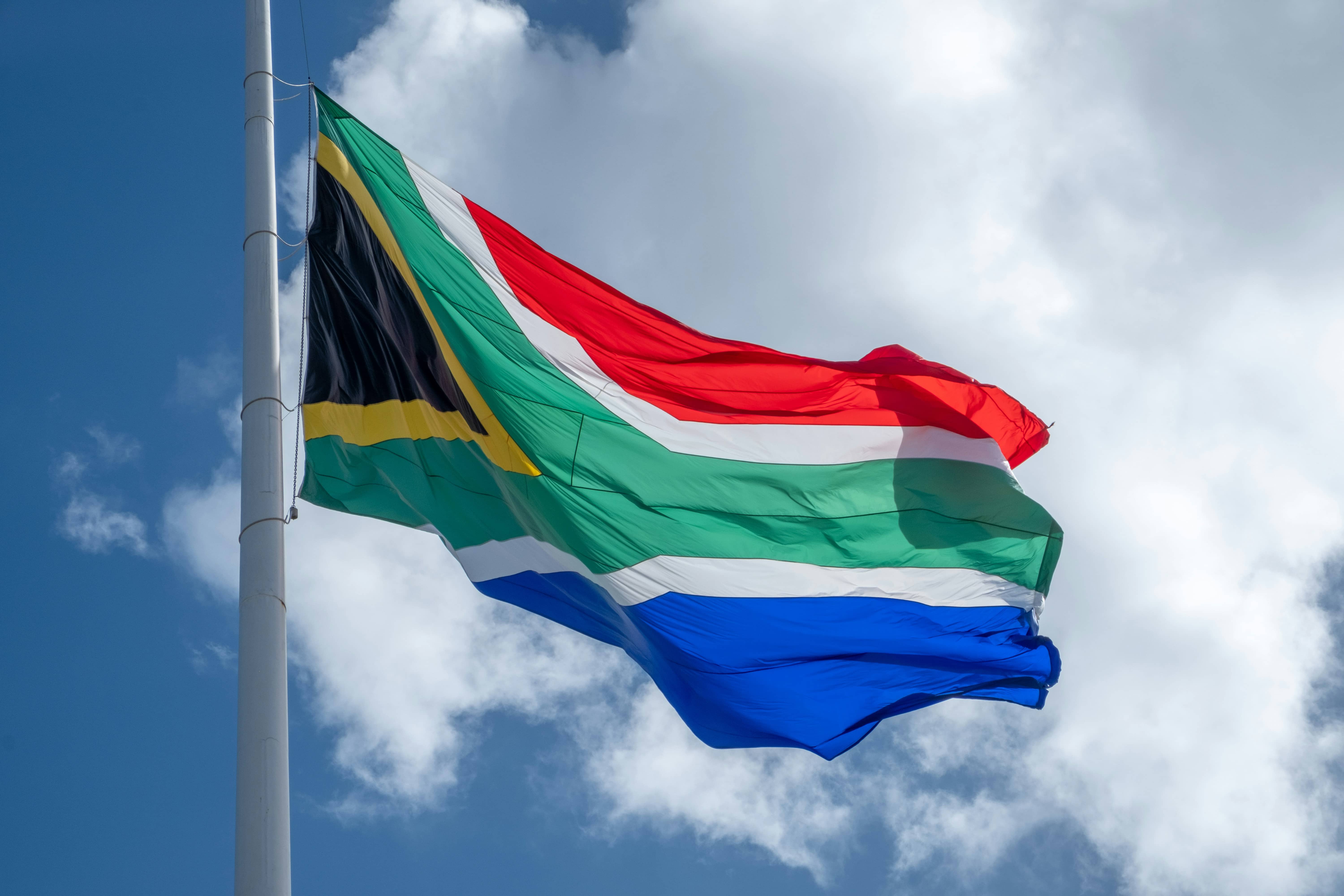
Introduction 🌍
Happy Heritage Day to all my fellow South Africans!
I hope you find a way to celebrate your own special heritage, as well as being a South African, today.
In this article, I'm going to talk about 5 aspects that I believe make SA a truly special country.
Before I do that, I'm going to go through SA's history and heritage. I've intentionally not provided a quick link in the intro to enable skipping over those two sections, because I think it's important to understand where we've come from and why we are the way we are now. It's good to have that context before going over the section about what makes this country so special.
Let's do this!
South Africa's History ✊🏻
Let's start with the rough, but highly important stuff, because this needs to continue to be taught, continue to be spoken about, and continue to inform how this country moves forward. It's part of why we are where we are today as a country, and that has or continues to impact every one of us in some way or another.
I'm going to quote Wikipedia for this one, because the page, as it stands at the time of writing this, offers a nice summary of the history of South Africa.
"Archaeological findings suggest that various hominid species existed in South Africa about 2.5 million years ago and modern humans inhabited the region over 100,000 years ago. The first known people were the indigenous Khoisan, and Bantu-speaking peoples from West and Central Africa later settled in the region in the early centuries CE.
In 1652, the Dutch established the first European settlement at Table Bay, and in 1795 and 1806, the British occupied it. Diamonds and gold were discovered in the 19th century, bringing a shift towards industrialization and urbanization.
The Union of South Africa was created in 1910 out of the former Cape, Natal, Transvaal, and Orange River colonies.
Though a system of non-racial franchise had existed in the Cape, it was gradually eroded, and the vast majority of Black South Africans were not enfranchised until 1994.
During the 20th century, the black majority sought to claim more rights from the dominant white minority, which played a large role in the country's recent history and politics. The National Party imposed apartheid in 1948, institutionalizing previous racial segregation.
After a largely non-violent struggle by the African National Congress and other anti-apartheid activists both inside and outside the country, the repeal of discriminatory laws began in the mid-1980s. Universal elections took place in 1994, following which, all racial groups have held political representation in the country's liberal democracy, which comprises a parliamentary republic and nine provinces.
According to the V-Dem Democracy Indices, South Africa is ranked the 53rd strongest electoral democracy worldwide and the third in Africa."
In addition, SA may very well be the birthplace of humankind. The South African Journal of Science states that Bolt's Farm is where the earliest primates were discovered. The farm is a paleontological site, located in the Cradle of Humankind World Heritage Site, which is in the northwestern part of the Gauteng province of SA. I've visited this site and it's absolutely incredible. I highly recommend you go there if you have the chance to do so.

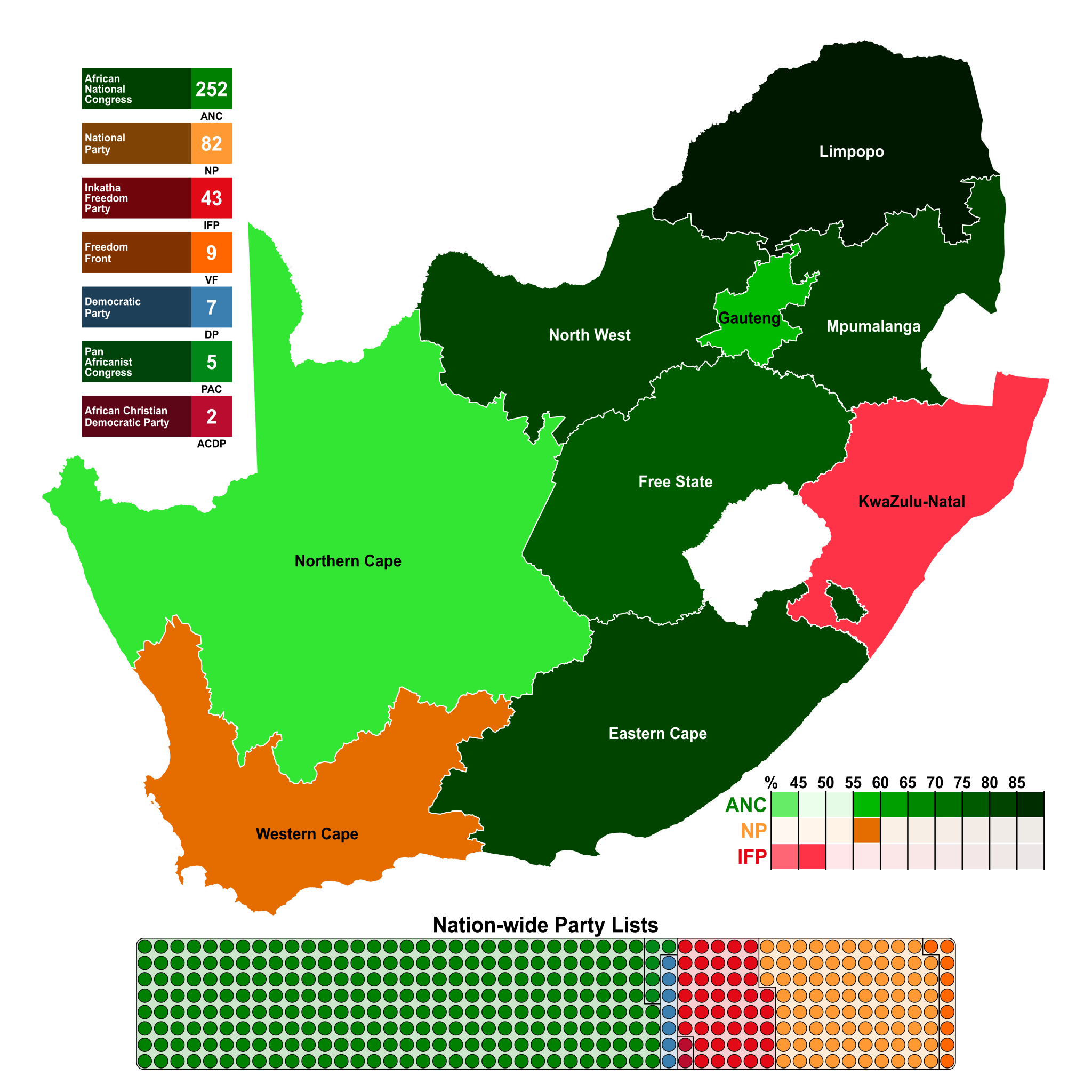
South Africa's Heritage 🧑🏻🤝🧑🏾
So, in summation then, my country may very well be where humankind first walked on this earth.
It's also a country that was colonized by the Dutch, French, and British. Stripped of a lot of its natural resources. Held back in terms of its industrial advancement. Pillaged, controlled, and put to use to benefit foreign powers, which are now very advanced and wealthy nations (and are ignoring things like paying reparations, returning local artifacts housed in museums overseas, and apologizing for what they did).
And, it's also a country where around 80% of the population (tens of millions of people) were subjugated by a racist government under a system of apartheid that lasted for 46 years, and continues to impact the country today through still-existing racism, and, very importantly, generational disadvantages.
In other words, to give you an example, there's perhaps someone right now working, cleaning houses, for the South African minimum wage for the domestic worker sector, which is currently R4,633.44 per month. For foreign readers, that equates (using exchange rates in Google as at the time of writing this) to AUD 389.47 per month, GBP 199.25 per month, and USD 265.35 per month. Yes, seriously.
That person earns that wage, in this hypothetical (but likely very real scenario) because they never had the opportunity to go to school, to get an education, so they could have the chance to get a higher paying job.
They never had that opportunity because their parents couldn't afford the school fees.
Their parents couldn't afford the school fees because they, themselves, had to work low-wage jobs because they also didn't get an education, because...
Are you seeing where this is going?
Their parents were living under apartheid. They were legally unable to go to good schools. They were legally unable to get high-paying jobs. They were legally unable to live near the central business district in their city, and were forcibly removed from their homes if they did originally live in those now very-expensive (i.e. unattainable for most citizens) areas. They were legally denied the right to go to "white-only beaches", sit on "white-only benches" in public spaces. They had to carry passes around with them, with races on those cards, invented by the then-South African government as part of the apartheid system. They were arrested and detained without due process. They were beaten by apartheid police. They were not allowed to protest against the system. And, crucially, they were legally denied the right to vote, which meant they couldn't democratically change the system.
That's why it's important to remember that it may take a long time for this country to get to where it wants to be. When people say, "it's been 30 years since our first democratic elections, but..." and then complain about things here, I think to myself... do you understand that that's 16 fewer years than apartheid was in existence? Did you expect everything to be all nice for everyone, like flicking a light switch? It may take just as long as apartheid lasted to even get back to where we were before the system began. Damn, it may take multiple times longer than apartheid lasted to get there. Holding 80% of a country's population back for almost 50 years has very long-term negative impacts on the entire country (I find it so funny how so many white people fled SA around 1994, thinking they'd face retribution, which, of course, never happened, because the people in power took the high road, as they'd done throughout apartheid). And that's not to mention being held back by colonialism by multiple countries for so many years. That takes time to recover from in terms of things like building your economy and infrastructure, especially to equally benefit everyone in SA, which is (and should be) the goal.
Relevant digression: I want to make a side note here that it's, at least these days, from my anecdotal experience, if not also before, not only white against other race racism that has existed in South Africa. There continues to be racism between non-white races in the country that needs to be spoken about more and addressed. Coupled with that is seemingly pervasive cultural biases and negativity between numerous cultures here (again, traditionally non-white). Throughout my life, living in SA, I've probably witnessed just as much racism from one non-white group towards another non-white group as I have from white people towards non-white people. Let that sink in. That's not in any way excusing anything, it's just saying that this goes far beyond apartheid, and involves many races, cultures, and traditions here in SA. There should not be any undue animosity between any groups in SA. Remember, we're all human beings. The rest doesn't have to be relevant when it doesn't have to be.
We need to stand together, because we're stronger that way. That's how we succeed. Get to know your neighbor. Go out of your way to learn things, through first-hand experiences, with people who are very different to you. Open your mind to being wrong, especially if you're making generalizations about large groups of our society. Remember, it's okay to be wrong. Just accept it, if that's the case, learn from it, and move on, having grown in the process.
If you'd like to read more about our first democratically-elected (i.e. legitimate/actual first) President, Nelson Mandela, you can do so here and/or read his autobiography, Long Walk to Freedom. The man is absolutely inspirational, he was then, and he is still. Imprisoned unjustly for 27 years (and declared a terrorist by the United States... and only being removed as one on their list in 2008...), he, when released, chose to peacefully negotiate an end to apartheid.
He also chose, as leader of a brand new (in a legal sense) political party, the formerly-banned ANC, (under no obligation whatsoever, having won 62.65% of the vote in the 1994 elections - a majority in Parliament) to include members of the National Party/NP (the former apartheid government) in his cabinet, forming a government of national unity of sorts. The NP didn't deserve that, in any form, but Mandela offered it anyway. NP members could've been imprisoned for what they did, but the choice was made not to do that.
That's absolutely incredible to me. Think of the fortitude, think of the ideology, think of the care that that man had, and how he put peace and progress for all above everything else. He rose above what I assume were very personal angers for what happened to him, and he served as our first President, and gave us the strong social democratic system, that forms the foundation upon which we're luckily still governed on today. That's a part of South African culture, and I absolutely love that.

Fortunately, through the strength and resilience, through the determination and ideology of the numerous highly-educated, foreign-trained freedom fighters and advocates of a free and fair South Africa, and because of (in my opinion this is the only reason negotiations to end apartheid happened when they did) the threat of a civil war that would've been very much lost by the apartheid government of the time, we now have the democracy we have, and everyone has the right to participate in that through voting, protest action, and exercising their robust rights as employees and residents of this great, and now finally unified, nation.
Okay, so. That's the rough stuff. Rough, but true. It's the history of South Africa, and it's part of what makes the country what it is today. However, there are other things that make SA the country it is today. So, now it's time to chat about those. Why am I so proud to live here? What are the 5 aspects that I think make South Africa a really special country?
What Makes South Africa So Special?
-- Part 1: Our Biodiversity 🌿 --
South Africa is home to absolutely amazing biodiversity.
It's one of the world's few megadiverse countries, of which there are only 17. That's 17 countries out of around 200 around the world. That's really something to be grateful for, living in SA.
A megadiverse country is one that is part of a group of countries that harbor the majority of Earth's species and high numbers of endemic species.
To quote Wikipedia, "A megadiverse country must have at least 5,000 species of endemic plants and must border marine ecosystems".
Endemism refers to a species being found only within a single, defined geographic region (such as a country, island, or other defined zone). This is distinct from indigenous/native species, which are species that are part of a given ecosystem where their presence is the result of only local, natural evolution. In other words, a species can be indigenous to multiple countries, for example, but a species can be endemic to only one country.
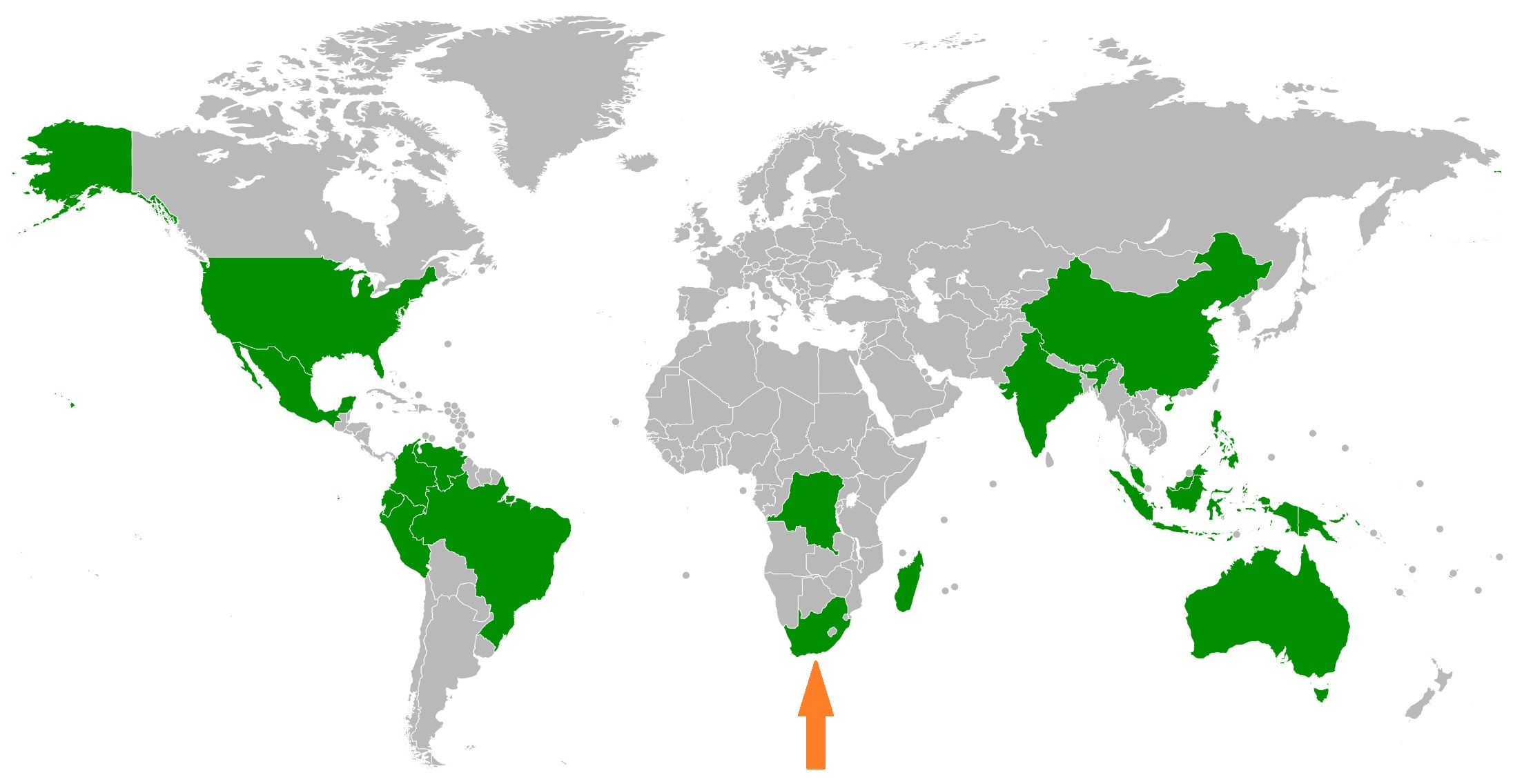
(which is indicated by the use of an orange arrow)
Fynbos is a big part of this biodiversity.
It's a small belt of natural shrubland or heathland vegetation, located in the Western Cape and Eastern Cape provinces of South Africa. The area is predominantly coastal and mountainous, with a Mediterranean climate.
To quote Wikipedia again (emphasis is my own), "The fynbos ecoregion is within the Mediterranean forests, woodlands, and scrub biome. In fields related to biogeography, fynbos is known for its exceptional degree of biodiversity and endemism, consisting of about 80% (8,500 fynbos) species of the Cape floral kingdom, where nearly 6,000 of them are endemic.
There's a difference between the Cape floral kingdom, and the Cape Floral Region. The latter is part of the former.
"The Cape Floral Region is a floristic region located near the southern tip of South Africa. [However], it is the only floristic region of the Cape Floristic Kingdom, and includes only one floristic province, known as the Cape Floristic Province".
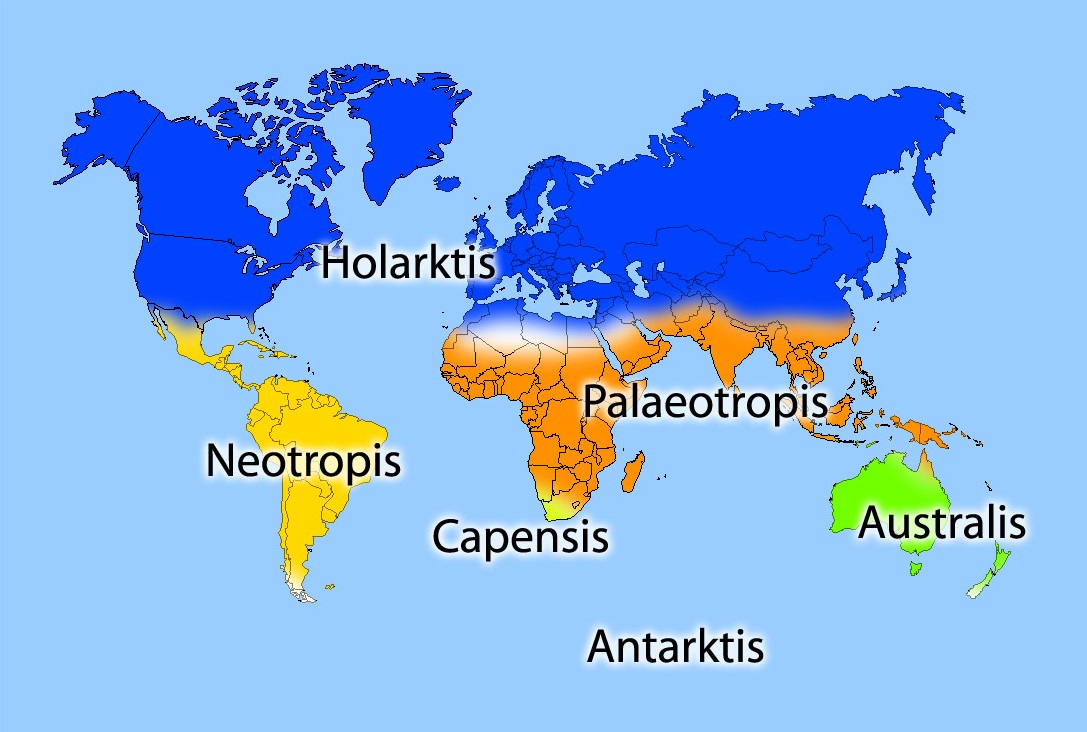
Fynbos accounts for half of the surface area, and 80% of the plant species, in the Cape floral kingdom. The fynbos in the western regions is richer and more varied than in the eastern regions of South Africa.
It's so awesome to have so many gorgeous, endemic plants to enjoy when I go for walks and hikes!
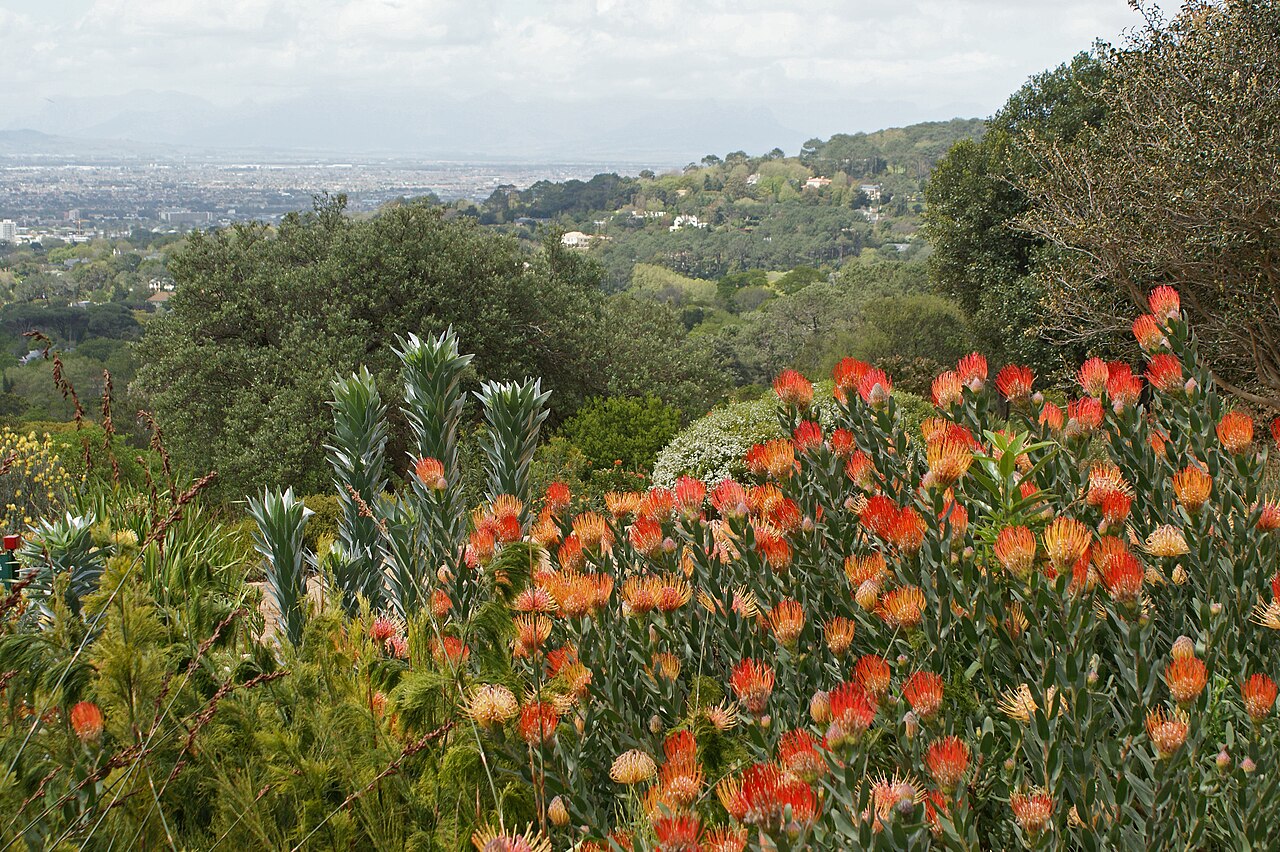
Some vegetation types that are endemic to Cape Town are Peninsula Granite Fynbos, Cape Flats Sand Fynbos, and Lourensford Alluvium Fynbos.
In 2004, the "Cape Floral Region Protected Areas" were inscribed as a World Heritage Site (which are areas and landmarks that have legal protection by an international convention administered by UNESCO, for the areas and landmarks having cultural, historic, or scientific significance. The sites are deemed to contain cultural and natural heritage that is considered to be of outstanding value to humanity. Now that really is something special).
The site includes eight representative protected areas, one of which is right here in my city of Cape Town; the Table Mountain National Park. The Park, which was proclaimed in 1998 for the purpose of protecting, in particular, our rare fynbos vegetation, is managed by South African National Parks (SANParks), which manages all of South Africa's national parks. Table Mountain National Park contains two major landmarks; Table Mountain, after which it's named, and the Cape of Good Hope. Other national parks in South Africa include Garden Route National Park (the Garden Route is my favorite region in the entire world 😊🐘🌲), Agulhas National Park, Karoo National Park, Mapungubwe National Park, Namaqua National Park, Tankwa Karoo National Park, and West Coast National Park.
Some of my favorite plants that can be found around Cape Town include:
- Strelitzia reginae,
- Agapanthus praecox,
- Clivia miniata,
- Erica annectens,
- Buxus macowanii,
- Zamioculcas,
- Chamaedorea seifrizii,
- Plumeria rubra,
- Afrocarpus falcatus,
- Quercus robur, and, last but definitely not least,
- Trinette variegated schefflera arboricola.
Many amazing plants can be enjoyed at one of my favorite places to visit; Kirstenbosch National Botanical Garden. Kirstenbosch places a strong emphasis on the cultivation of indigenous South African plants. The Garden covers 5 of South Africa's 6 biomes, is administered by the South African National Biodiversity Institute (SANBI), and is a truly spectacular place to walk around and relax.
-- Part 2: Our Natural Beauty 🏄🏻♂️ --
South Africa truly is an absolutely gorgeous country.
We have so many different landscapes and types of natural environments to explore, from forests and mountains, to beaches and swamps, to grasslands and deserts.
Take my home city of Cape Town, for example. Within a drive of 15 to 20 minutes or less from my house, I have access (for free, obviously, because public land is meant for public enjoyment at no cost in South Africa, as it should be) to the following:
- Forests,
- Multiple mountain areas with hiking paths and fynbos to enjoy,
- Multiple walking and cycling trails, along and/or leading to rivers, lakes, and waterfalls,
- Multiple gorgeous wine farms to walk around on, and
- Multiple Blue Flag (internationally-acclaimed) beaches, such as the one in the photo below.
Isn't that incredible?
Some people go to the south of France for wine farms, the US for forests, Switzerland for mountains, Vietnam for walking and cycling trails, and Spain for beaches.
There's no need to go to another city, let alone another country, to experience these things, because they're all right here, every day, whenever I want them! I really am fortunate to have been born and grown up here in Cape Town.
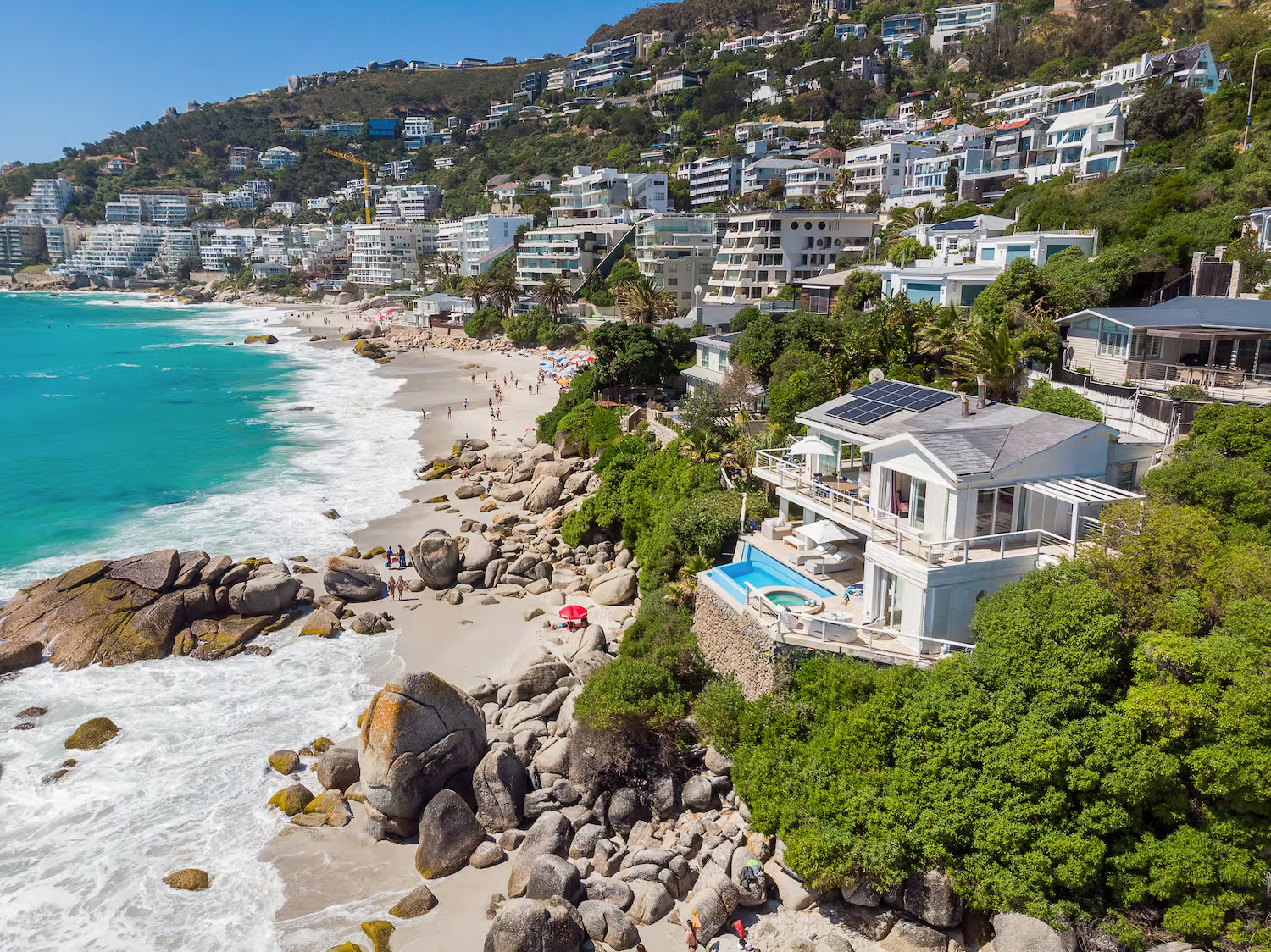
-- Part 3: Our Shared Culture 🥗 --
Saffers (South Africans) have a very unique and special culture - one which I identify with, and am proud of. Being South African is definitely a part of my identity, and I love that that's the case.
One of my absolute favorite things about South Africans is how friendly they are. In general, Saffers are warm, welcoming, helpful, kind, open, outspoken, know-where-you-stand, easy-going, funny, and chatty people. It's very easy to connect with them, have nice conversations about... anything really, and get to know them, including on a deeper level, if that's your goal. We're really easy to talk with and get along with. And guess what? Those are all traits of mine! So, if you've met me, know that I represent the average South African really well in this regard.
Art, Culture, & Architecture
The oldest art objects in the world were discovered in a South African cave. Dating from 75,000 years ago, small, drilled snail shells were assumed to have had a string put through them, and to have functioned as jewelry. South Africa was one of the cradles of the human species, and one of the defining characteristics of the human species is the creation of art.
The architecture of South Africa reflects the vast ethnic and cultural diversity of the country. In addition, influences from other, distant countries have contributed to the variety of today's South African architectural landscape.
South Africa has a vibrant theater scene, with many great plays having been written and performed here. Some well-known theaters in Cape Town include the Artscape, the Baxter, and Theater on the Bay. For an example of local theater talent (extremely talented performers), you can watch this YouTube video, wherein Jonathan Roxmouth and Roelof Colyn perform parts of a show I attended twice, called A Handful of Keys.
SA also has a great stand-up comedy scene, with well-known local artists including my favorite, Marc Lottering, as well as Trevor Noah.
South Africa's very unique social and political history has generated a broad variety of literatures, with themes spanning pre-colonial life, the apartheid period, and the lives of people in the "new South Africa".
South Africa has a rich tradition of oral poetry, and several influential poets became prominent in the 1970s.
Music
There is huge diversity in terms of music in South Africa. The SA music scene has produced and includes genres such as kwaito, amapiano, mbube, mbaqanga, gqom, shangaan electro, afro house, and afro fusion. Zenzile Miriam Makeba, lovingly nicknamed Mama Africa, was a South African singer, songwriter, actress, and civil rights activist. I'll link a very famous song of hers, Pata Pata, on YouTube here. Another famous Miriam Makeba song is Qongqothwane. I'll link a beautiful cover of that song here, performed by South African singer Siki Jo-An. If the rhythm of the 5 min 3 second mark onwards makes you want to get up and dance with her, you're getting a small taste of how excited I feel to be proudly South African. (Also, she did that in stilettos... what an absolute champion!)
Miriam Makeba was the first artist from Africa to popularize African music around the world, which she did in the 1960s. She sang many songs in protest towards apartheid. In retaliation, the South African government revoked her passport in 1960, and her citizenship and right of return in 1963. As the apartheid system was nearing an end, she returned home for the first time, in 1990. She became (and remains) internationally famous and respected.
Innovation
Inventions and innovations from South Africa include early internet company Thawte, which focused on digital certificates and internet security (founded by Mark Shuttleworth, the first South African to go to space, and the world's second ever space tourist); computer-assisted tomography (CT scans); crystallographic electron microscopy techniques; the Yellow Fever vaccine; the first automotive fuel produced from coal (by SASOL); the automated pool cleaner; dolosse; the Tellurometer; and the first controlled use of fire by humans (as per the earliest evidence we have of such, at Swartkrans, 1.5 million years ago). South Africa has cultivated a growing astronomy community. It hosts the Southern African Large Telescope, which is the largest optical telescope in the southern hemisphere.
Food
South African cuisine is a mix of traditional cultural cuisines, forming a unique blend of local food for us to enjoy. These cuisines include influences from indigenous groups, as well as Cape Malay, South African Indian, Bantu, Afrikaans, British, Dutch, French, and Portuguese communities.
Nando's is a global chain of takeout restaurants providing a South African Portuguese style of food.
Saffers are known for loving to enjoy our gloriously extremely warm and sunny climate (like I enjoy here in my Mediterranean Cape Town climate) by getting together for a braai (which is an Afrikaans word, equivalent to barbecue).
Some of my favorite South African cuisines (some of which originated here) include:
- Rusks/beskuit (a rectangular, hard, dry biscuit that's dunked into tea or coffee)
- Blatjang (a tangy SA-style chutney)
- Smoked snoek (regional mackerel)
- Melktert (a milk-based tart)
- Koeksisters (sweet, deep-fried pastries)
- Bobotie (a dish including baked egg, often served with "yellow [turmeric] rice" and chutney)
- Samosas (a triangular, fried pastry, that can be filled with, for example, vegetables)
- Biryani (a mixed rice dish, which can be made with prawns)
- Vetkoek (a deep-fried dough bread)
- And last, but again, definitely not least, rooibos tea (derived from a plant that grows in our fynbos biome, it's generations old, caffeine-free, and naturally sweet!)
We also have a flavor that, at least in my experience, Saffers really enjoy. And that's "tangy". In other words, it's tart (acidic), and results in us having readily-available tangy-style mayonnaise (which is made by adding vinegar and citric acid, among other things, to it before it goes to the store shelves). Another item that represents this flavor very well is the classic Mrs H.S. Balls Peach Chutney. Mrs. Balls actually lived in my neighborhood, not far from my current home!
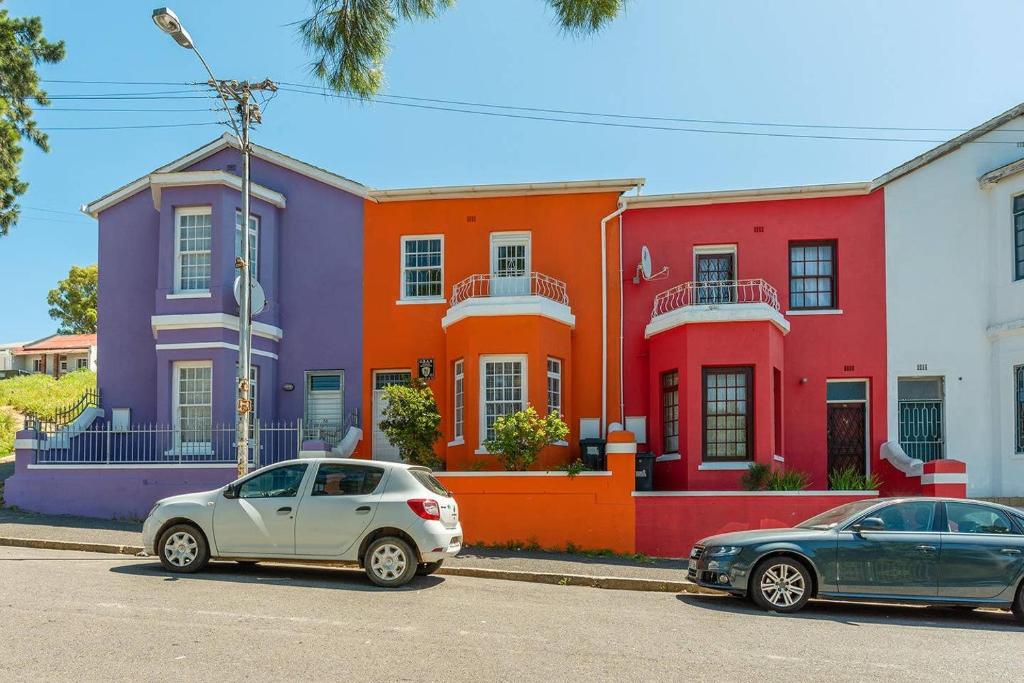
-- Part 4: Our Diversity ✨ --
In the 2022 (most recent) census, the population of South Africa was measured to comprise around 62 million people.
Amongst those 62 million people is an incredible amount of diversity. Diversity of thought, diversity of practice. Diversity of traditions. Diversity of culture. Diversity of cuisine. And, diversity of language.
Ethnic Groups
Race is a social construct, and shouldn't matter. But, historical and present day society has decided it does, and it has an impact. So, as much as I'd like it not to be a thing, since I don't care what color someone's skin is, I don't get to choose how demographers work. And race is part of demographic data. So, I'll be talking about it here.
As per that 2022 census, the ethnic makeup of South Africa was as follows:
- 81.45%: African (including Zulu, Xhosa, Tswana, Pedi, Basotho, and other ethnic groups)
- 8.15%: Colored *
- 7.27%: White (including the Afrikaner ethnic group)
- 2.74%: Indian
- 0.39%: Other ethnic groups
* I want to clarify that "colored" is an official racial group in South Africa and refers to people who have multiracial ethnicity. We have communities and individuals choosing to refer to themselves as colored through to the present day. It's not a racial slur like it is in the United States.
There are so many different communities and cultures mixing their lives and lifestyles with one another, and sharing their traditions. It's a truly wonderful thing.
South Africa's population grew by an estimated 1.82% in 2022. It's expected, by the UN, to reach around 80 million people by 2100. Not massive growth by any means, but still notable. And still growth.
Languages
There are at least 35 languages spoken in South Africa. We are proud to have 12 official languages, and use English as the lingua franca and language of business, as well as the most commonly used language in media.
The most common language spoken as a first language in South Africa, according to the 2022 census, was Zulu, at 24.4%, followed by Xhosa at 16.3%, then Afrikaans at 10.6%, then Sepedi at 10%, and then English at 8.7%. Unofficial (i.e. the "other" category of) languages as a first language totaled 2.1%.
Cultures
Different provinces and major cities have different cultural and language makeups, which is really cool, because you get to travel around SA and experience different things in different regions. For example, in terms of the 4 largest cities (in no particular order):
- Cape Town, where I live, has a large colored * population, as well as a Cape Malay population, and lots of white, English-speaking people.
- Durban has a large Indian South African population.
- Johannesburg has a majority black population, but is also very mixed in terms of culture and language.
- Pretoria has more than half of its population comprising white people, and has a strong Afrikaans language prevalence.
Religious prevalence is different across ethnic groups. For example, around a quarter of white people have no religious affiliation.
Also from the 2022 census, our median age was 28 years (we have a very young population, which is a great thing for future economic growth); 68.3% of the population was living in an urban area; our literacy rate was 95%; our birth rate was 1.85 per 100 people (which ranked 77th in the world); and our net migration rate was 0. Our main country from which immigrants move to South Africa was Zimbabwe, followed by Mozambique, then Lesotho, then Malawi, then the United Kingdom, then Ethiopia, and then Namibia.
Indigenous peoples
South Africa is also home to two indigenous population groups; the San and the Khoekhoe. These two groups don't identify themselves as black. In the 2011 census, many San people chose the "other" racial category, while many Khoekhoe people chose the "colored" category.
The San have no collective name for themselves, and "San" is actually a derogatory Khoekhoe word used to refer to foragers without cattle or other wealth. However, the San Council testified that is has no problem with the word San being used in a positive way, and the Court ruled that it is not derogatory.
The San peoples are one of the oldest cultures in the entire world, and the largest number of San actually live in neighboring Botswana.
A set of tools that is almost identical to that used by the modern San, dating to 42,000 BCE, was discovered at Border Cave in the SA province of KwaZulu-Natal in 2012.
UNESCO has recognized Khoe-speaking culture via its inscription of the Richtersveld region, in South Africa's Northern Cape province, as a World Heritage Site. (Note that, just during the course of writing this article, this is the third World Heritage Site I've mentioned that's located in South Africa. These are things we can really be proud of as a nation!)
It's a really special thing to live in a country with such rich history, and so much diversity. I'm really fortunate to have easy access to so many old, interesting cultures within my country.
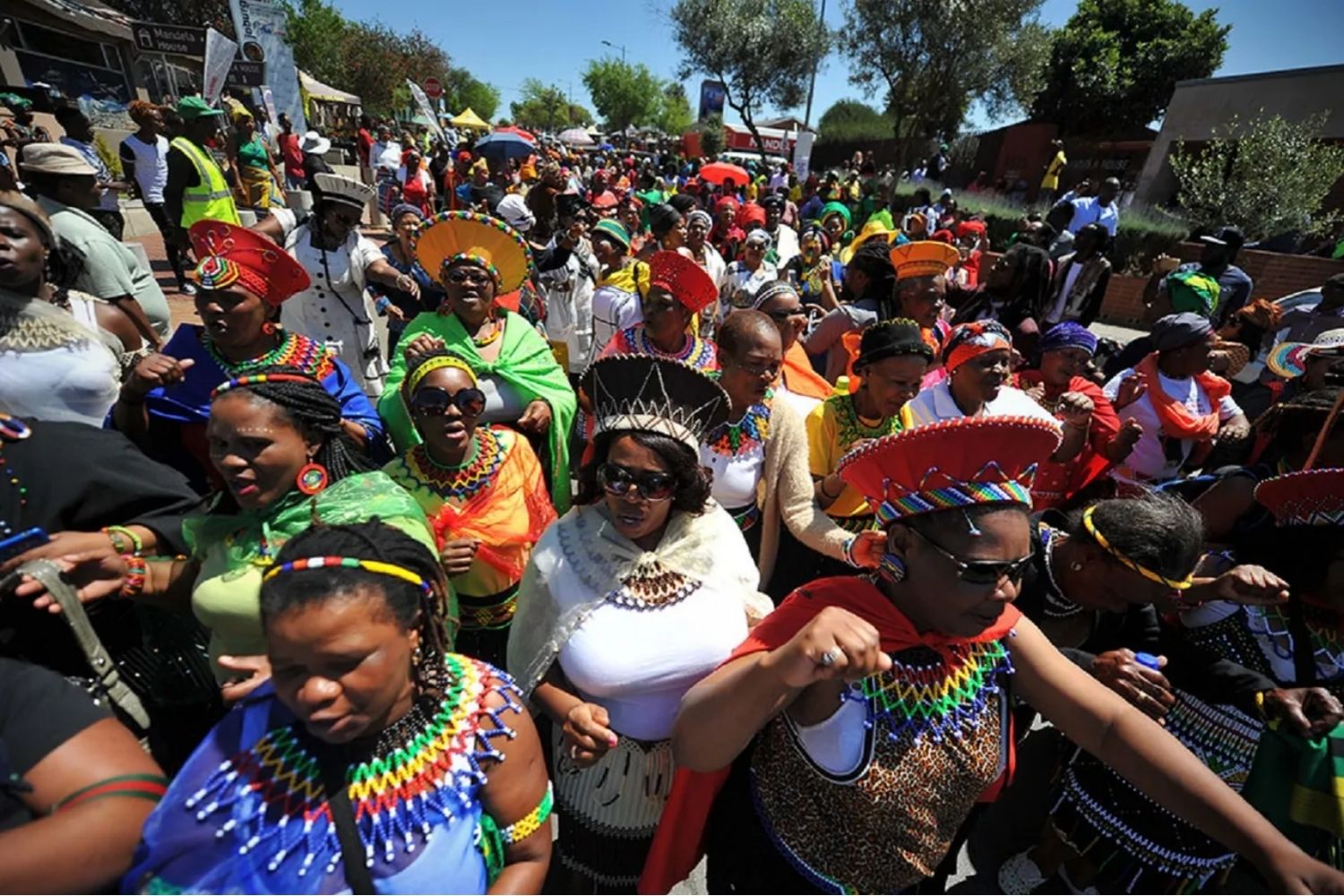
-- Part 5: Our Democracy 💪🏻 --
I'm very proud of the strong democracy we have here in South Africa. The country was established, in 1994, when our Constitution was rewritten, on a foundation of fantastic principles, which have remained to this day, and will no doubt continue to remain, as they well should.
The Electoral Commission of South Africa is an entirely independent organization that manages all of our elections (yes, at every level). The Commission ensures that we have free, fair, and regular elections, as per our Constitution. It does a great job of this!
The current Constitution is the country's fifth, and was drawn up in 1994, alongside our first free and fair democratic elections. It was promulgated by our first President, Nelson Mandela, in late 1996, and came into effect in early 1997, replacing an Interim Constitution that existed since 1993 (the year in which I was born. Yay!)
Importantly, we've kept our Constitution up-to-date. Constitutions are not meant to be written and left as is (looking at you, USA...). They're meant to reflect society as it is in the present day. To that end, South Africa has updated its Constitution with 18 amendments since 1996.
If you'd like to read about those amendments, you can do so here.
From the preamble to the Constitution of South Africa, I will quote the following; "We, the people of South Africa, Recognise the injustices of our past; Honour those who suffered for justice and freedom in our land; Respect those who have worked to build and develop our country; and Believe that South Africa belongs to all who live in it, united in our diversity".
The 14 Chapters, 244 Sections, and 8 Schedules of our Constitution are all very important, but I want to speak a bit about Chapter 2; The Bill of Rights.
The Bill of Rights lays out the civil, social, cultural, political, and economic rights of all South Africans. What's quite special is that many of these rights apply to anyone in South Africa, not just citizens.
The Bill of Rights
Among the various sections within the Bill of Rights, the Chapter provides for the right to:
- Be protected, by law, from discrimination on the grounds of sexual orientation, age, disability, religion, race, gender, sex, pregnancy, marital status, color, social or ethnic origin, conscience, belief, birth, and language.
- Freedom from slavery, servitude, or forced labor.
- Human dignity.
- Life.
- Privacy.
- Freedom of speech and expression, which includes, importantly, freedom of the press, as well as academic freedom. Explicitly excluded however, are things such as incitement to violence, and hatred based on a number of factors. Freedom of speech and expression, yes, but with consequences for certain things, as it should be.
- Freedom of assembly and the right to freely protest.
- Freedom of association.
- Vote; stand for public office; form, join, and campaign for a political party; and regular, free, and fair elections.
- Obtain a South African passport, as well as leave and enter the country.
- A healthy environment.
- Housing.
- Education.
- Access to information, including all information held by the government.
- Access to the courts.
- The enjoyment of your culture.
- Property.
- Security, including reproductive rights.
Modern-day politics
To give you an example of how the country has progressed, and how strong and progressive its laws are, South Africa, learning from its history during the apartheid period, became, in 2006, the fifth country in the world to legalize same-sex marriage. It still remains the only African country to have done so.
That law was passed swiftly. In 2006, it was passed by the National Assembly on 14 November, passed by the National Council of Provinces on 28 November, and went into effect on 30 November. We don't do political gridlock here (again, looking at you, USA). We get things done.
Recently, as a result of the 2024 general elections, multiple parties formed a coalition, as a government of national unity, which is the first time since the 1994 elections where multiple parties have to work together to pass bills. This is a really fantastic development, and a really exciting time to be living in SA!
South Africa ranks highly on lists of democratic freedom, strength, and stability (especially for a country on the African continent, where it really stands out amongst its African peers for many positive reasons), and the country stands up for what it believes in. We're all benefitting from a very robust democratic system, and we should be grateful for that. I certainly am.
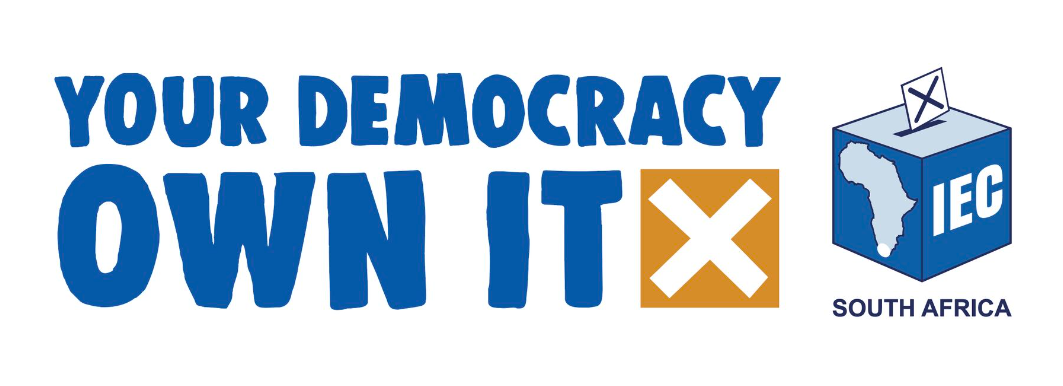
national, provincial, and municipal levels
Conclusion 🙂
So, there you have it! My 5 facets of what I believe combine to create the wonderful country I'm so proud to call home. And I do so love it here!
For any South Africans or non-South Africans wanting to learn more about the country, you could start by visiting the following local sources of information:
- South African History Online (funded by, among others, the National Heritage Council),
- The Government of South Africa's "About SA" page,
- The Statistics South Africa website, and
- South African Gateway.
Once again, I wish all my fellow South Africans a very happy Heritage Day 2024! Let's celebrate our shared cultural identity, and work together to continue on the path to improving this country for every single person who lives here, as they deserve.
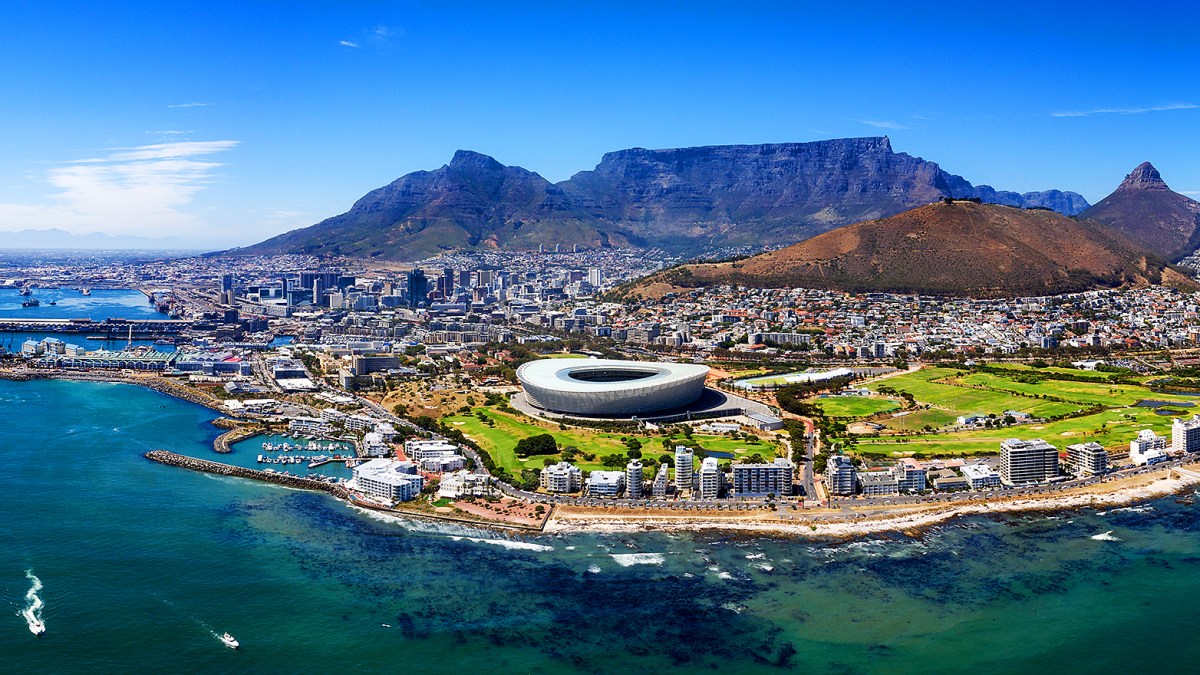
Cape Town, Western Cape, South Africa
------------------------------
I post a variety of articles on my website about my life, People Operations, and various other topics. To follow along with future articles I post on this website, feel free to follow me on LinkedIn here.
Informational sources for this article: 1; 2; 3; 4; 5; 6; 7; 8; 9; 10; 11; 12; 13; 14; 15; 16; 17; 18; 19; 20; 21; 22; 23; 24; 25; 26.
Image sources for this article: 1; 2; 3; 4; 5; 6; 7; 8; 9; 10. (Note: either some or all images have been converted to formats other than their originals, as well as resized, to better suit the article).
